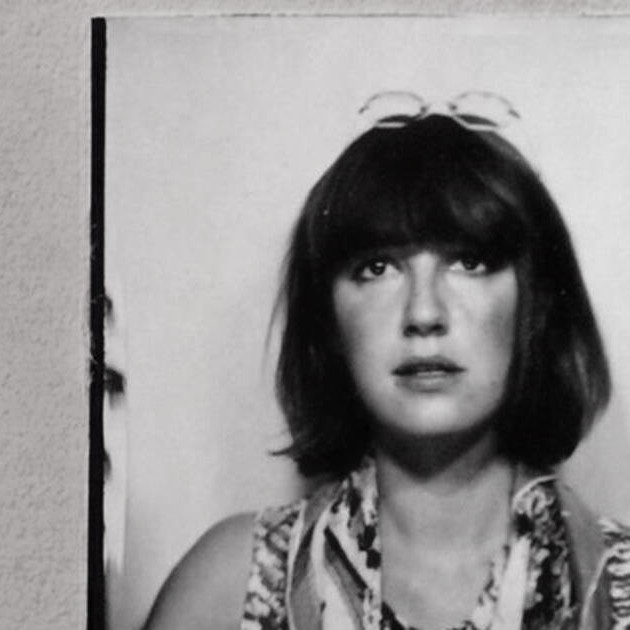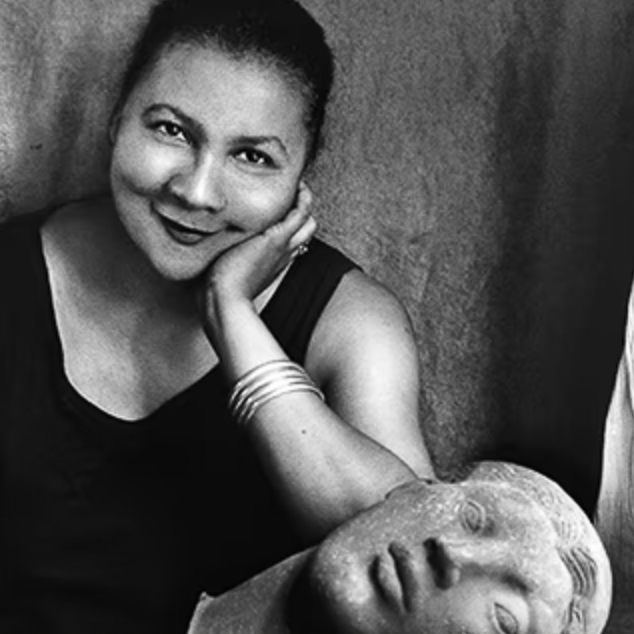Ben Smith. BuzzFeed Yesterday Fire and Fury author Michael Wolff reported for the Ankler that Random House has decided not to publish a collection of Norman Mailer’s political writings in 2023. Wolff’s article cited a Random House source who blames a “junior staffer’s objection” to the essay “The White Negro” and the idea that Roxane Gay might also object. (Wolff clarified that Gay “may have been employed as merely a generic type of objector.”)The story lit up Twitter for the day, for better and for worse. In his newsletter, Jeet Heer took stock of the story and the larger
Raven Leilani. Photo: Nina Subin Vogue and Oprah Daily Books have posted their lists of the most-anticipated books of 2022. At the New York Times, Alex Traub has written an obituary for bookseller Ben McFall, the “heart” of the Strand Bookstore. “In phone interviews, three people—Lisa Lucas, the publisher of Pantheon Books; the writer Lucy Sante, a onetime Strand colleague of Mr. McFall’s; and Nancy Bass Wyden, the Strand’s owner—all referred unprompted to the reliability with which, when visiting Mr. McFall, they’d encounter a line of other people hoping to speak to him.” The Guardian has a new interview
Nathaniel Mackey. Photo: Nina Subin. At Hyperallergic, Albert Mobilio and John Yau pick their favorite poetry books of the year. Their choices include work by Nathaniel Mackey, John Keene, Will Alexander, and Kim Min Jeong, as well as an issue of the Chicago Review dedicated to contemporary Korean poetry. For the New Yorker, Hilton Als considers the life and work of Joan Didion, and explains how issues of race, class, and gender play out in her writing: “Raised in a white Republican family in Sacramento, she grew up with the rights and privileges of her class. But, as she
Seyward Darby At The Nation, Jennifer Wilson reviews Maggie Nelson’s new book, On Freedom, in which the poet and critic touts indeterminacy in four essays on sex, art, drugs, and the climate crisis. “For all the space she devotes in the book’s introduction to her worries over the right-wing co-optation of ‘liberation’ (as a political slogan, if not an actual politics), the book’s essays tend to find Nelson chiding the left for what she considers its overcorrections and overreaches,” Wilson writes. For more on the book, read Charlotte Shane’s essay in Bookforum. Alex Shephard, Erin Somers, and Eric Jett
Alexander Chee. Photo: M. Sharkey Alexander Chee, the author of the novel The Queen of the Night and the essay collection How to Write an Autobiographical Novel, will be editing the 2022 edition of Best American Essays. Author and biologist E. O. Wilson—who researched and wrote books about insects, human behavior, and biodiversity—has died at ninety-two. Wilson won the Pulitzer prize for nonfiction twice, for his books On Human Nature and The Ants. LitHub has a list of the New York Public Library’s most-borrowed books of 2021. At Crime Reads, Michael Gonzales pays tribute to Chester Himes and his
Parul Sehgal For the New Yorker, Parul Sehgal writes about the trauma plot: “Unlike the marriage plot, the trauma plot does not direct our curiosity toward the future (Will they or won’t they?) but back into the past (What happened to her?).” Twitter is weighing in. For his year-end newsletter, Sasha Frere-Jones has collected seventy-one reflections on the past year with contributions by Lucy Sante, Rachel Kushner, Hannah Black, Merve Emre, Pete L’Official, and more. 4Columns recaps its ten most read reviews of 2021, including Blair McClendon on The Underground Railroad Amazon series, Hermione Hoby on Sally Rooney’s novel
This week, the editors of Artforum and Bookforum remember Joan Didion, the peerless American novelist and essayist. Her canonical work was capped in 2011 by the memoir Blue Nights, which Gary Indiana considered for Bookforum alongside Susan Jacoby’s Never Say Die: The Myth and Marketing of the New Old Age. His essay is an uncompromising polemic about aging and death—and why we shouldn’t look away.
Joan Didion. Photo: Julian Wasser. Joan Didion has died at age eighty-seven. For Bookforum, Sarah Nichole Prickett reviewed Didion’s South and West in 2017, and Gary Indiana wrote about Blue Nights in 2011. For the New York Times’s 2021 edition of “The Lives They Lived,” Jane Hu remembers the pioneering author and scholar Lauren Berlant, who died in June. Hu writes that Berlant was always “careful not to moralize. Instead, their work was organized around an abiding generosity and curiosity about the shameful inconsistencies driving people’s interior worlds.” In the London Review of Books, Patricia Lockwood reviews Karl Ove
Mark Prins. Photo: Nina Cochran For The Point, Apoorva Tadepalli looks at the writing life in a personal essay that also discusses recent criticism in n+1 and Bookforum as well as fiction by Sally Rooney, Christine Smallwood, Lauren Oyler, and more. Reflecting on the idea that resisting “love what you do” rhetoric is politically useful but personally unsatisfying, Tadepalli observes, “There is a contradiction . . . of both scorning a system that’s shallow and rigged, and also feeling bitter about not being able to succeed within such a system.” For more on literary careerism, see Bookforum’s panel “Don’t
Louis Lomax In n+1, Elias Rodriques considers the life and work of journalist Louis Lomax on the occasion of Thomas Aiello’s new biography, published by Duke University Press. Rodriques writes of the reporter: “Lomax may have fallen out of historical memory, but, as a one-man embodiment of the Civil Rights Movement’s ideological diversity, he was integral to ensuring that the movement did not.” Historian Julius S. Scott has died at the age of sixty-six. Scott was known for a groundbreaking work on the Hatian Revolution, which started as a dissertation that finally found a publisher in 2018, after three
Eve Babitz Eve Babitz—the author of the cult classics Eve’s Hollywood and Slow Days, Fast Company—has died at age seventy-eight. As Kaitlin Phillips wrote in Bookforum: “Babitz’s strength in analyzing LA is that she never quite saw herself as one of the beautiful people. . . . She wasn’t born starry, and when you’ve had to make yourself that way, you understand how much art is involved: You don’t underestimate glamour or charm. It didn’t always come easy to Babitz, but she knew better than to make it look hard, so she learned to write the way she spoke.
Alexandra Kleeman. Photo: Fred Tangerman The Vice Media Union and the Writers Guild of America, East have agreed on a new contract, consilidating four previous contacts with the guild under one deal. The new agreement guarantees a minimum salary of $63,000 by 2024 and minimum annual raises of 3 percent. As the Hollywood Reporter writes, the contract also “offers a ‘retention bonus’ of $1,000 . . . eradicates NDAs regarding sexual harassment complaints; institutes anti-harassment and cybersecurity measures for employees . . . and offers certain employees flagged by the company’s security team safe housing or other security protections.”
Barack Obama. Photo: Pete Souza. Barack Obama has released his list of the best books he read in 2021. The former president’s picks include Lauren Groff’s Matrix, Jonathan Franzen’s Crossroads, Clint Smith’s How the World is Passed, Colson Whitehead’s Harlem Shuffle, and more. At The Cut, a roundup of writers remembering bell hooks on Twitter; at the New Yorker, Hua Hsu considers hooks’s legacy; at Essence, a list of some of her greatest books. The Brooklyn Rail selects the best art books of 2021. In the Washington Post, Stephen J. Adler and Bruce D. Brown write about a New
bell hooks. Photo: Pluto Press Poet, scholar, and activist bell hooks has died at the age of sixty-nine. She is the author of more than forty books, including All About Love: New Visions, Ain’t I a Woman: Black Women and Feminism, We Real Cool: Black Men and Masculinity, and poetry collections And There We Wept and Appalachian Elegy. Since 2004, she lived in Kentucky, her home state, where she taught at Berea College and founded the bell hooks Institute, which houses her personal collection of African American art. New York’s Eugene Lang College of Liberal Arts at the New
Tammie Teclemariam. The Wirecutter Union has reached a deal for a new contract with the New York Times. Last month, the union went on strike on Black Friday and the following weekend. Staff writer Kaitlyn Wells commented, “The collective strength of our unit is incredible. Despite the roadblocks of the pandemic and the Time’s continuous union-busting tactics, we didn’t give an inch in the vision of making Wirecutter the best place to work.” Tyler Stovall, the author of White Freedom: The Racial History of an Idea, has died at age sixty-seven. In an interview earlier this year for The
Anne Rice Anne Rice, the author of the gothic best-seller Interview with the Vampire and more than thirty other novels, has died. Chris Cuomo is being investigated for his attempts to help his brother, former governor Andew Cuomo, circumvent charges of sexual misconduct. After being fired by CNN, Chris Cuomo was dropped by his publisher HarperCollins. Deep Denial is, according to the publisher, a “provocative analysis of the harsh truths that the pandemic and Trump years have exposed about America—about our strength and our character—and a road map of the work needed to make our ideals match reality.” The
Shirley Hazzard. Photo: Nancy Crampton/Macmillan In Molly G. Yarn’s new book, Shakespeare’s “Lady Editors,” the scholar recovers the lives of more than sixty women who have edited the Bard. Yarn recently told The Guardian, “These things matter because the editor shapes and presents the text to readers—editing isn’t a neutral task.” Melissa Anderson reviews Paul Verhoeven’s latest film, Benedetta, which is about the Renaissance-era lesbian prophetess Sister Benedetta Carlini “whose life epitomizes the Dutch provocateur’s most abiding theme—sex and power.” You can read more about Benedetta in Moira Donegan’s contribution to Bookforum’s “Heaven and Hell” issue from summer 2020.
Abdulrazak Gurnah. Photo: © Mark Pringle. Abdulrazak Gurnah, the winner of the 2021 Nobel Prize for Literature, has given his Nobel lecture. The Tanzanian-born novelist stressed that “writing cannot be just about battling and polemics, however invigorating and comforting that can be.” Jon Caramanica considers the work of the late critic and musician Greg Tate, calling him “ a singular voice, a fount of bravura essays on the fantastical creativity, determined resilience and wry paradoxes of Black creativity and life. His writing froze and shattered time, supercharged neurons, unraveled familiar knots and tied up beautiful new ones.” The Wirecutter
Greg Tate. Photo: Nisha Sondhe/Duke University Press Greg Tate, the guitarist, cultural critic, and author of Flyboy in the Buttermilk, has died at age sixty-four. A longtime writer for the Village Voice, Tate wrote about everything from Basquiat to Eminem, and went on to cofound the Black Rock Coalition. He was first introduced to criticism by reading Amiri Baraka’s Black Music, and in his own work was known for what Hua Hsu has called his “slangy erudition.” Readers and friends remember Tate on social media, and a line he wrote in 1991: “I realized that the meaning of being
Jacqueline Rose. Photo: Mia Rose For Vulture, Kira Josefsson writes about works in translation and why big publishers have been reluctant to include the translator’s name on book covers. “It’s possible that publishers believe readers will be scared off if they know that a book is a translation. . . . It raises the question of whom we are translating for and why we read.” The Sycamore Review is asking readers for support as its host university, Purdue, is considering closing the magazine. In The Guardian, Jacqueline Rose writes about how the pandemic has changed the way we think



















